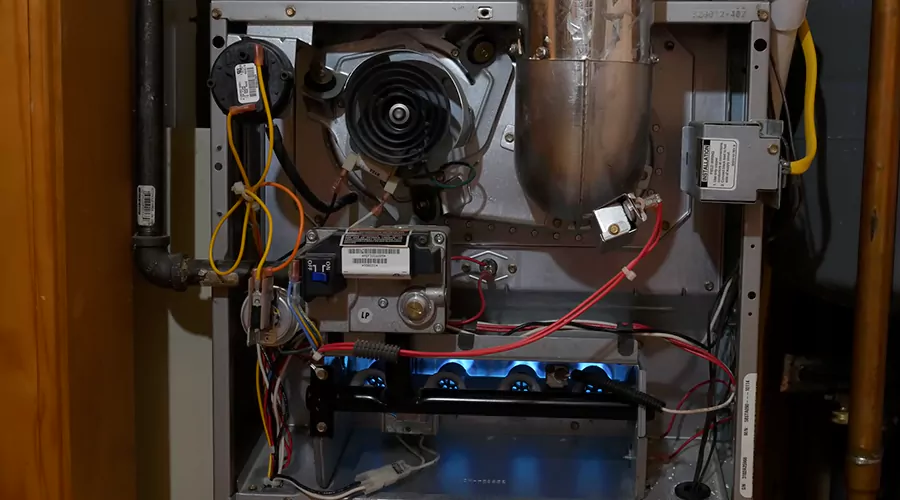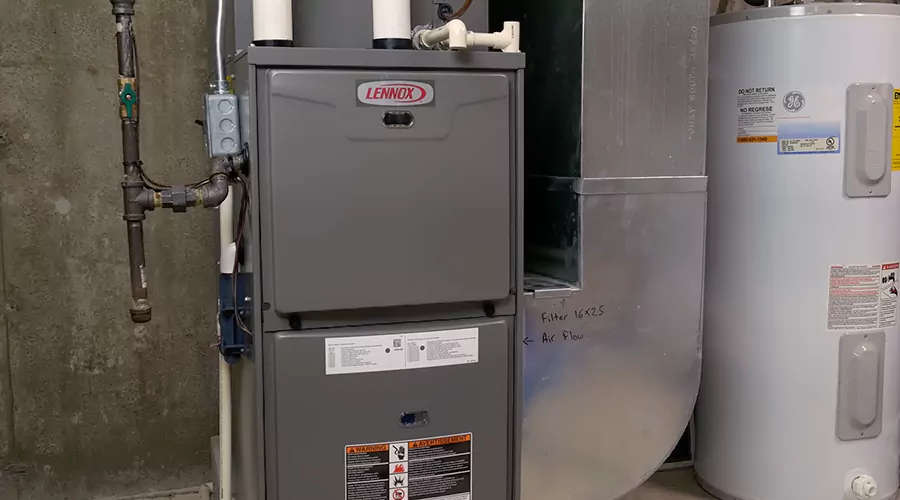Electric Furnace vs. Gas Furnace: Which Is Better?

Choosing an electric or gas furnace in your home is one of the most significant decisions that impact your comfort levels, efficiency, and pocket. One must consider some factors to decide which type of furnace is better because each of the presented variants has strengths and weaknesses.
Factors to Consider When Choosing a Furnace
There are factors you need to evaluate when deciding on which furnace to purchase, including your budget and the characteristics of your home or building. Consider the following essential aspects:
- Climate: Weather conditions are highly relevant to local conditions. Electric furnaces are ideal in warmer climates, while gas furnaces provide better efficiency, especially in colder places.
- Initial Cost: Electric furnaces are commonly cheaper initially than gas furnaces. However, these early costs must be compared with the long-term running costs of all these activities.
- Energy Availability: The accessibility of natural gas in your area may influence the decision. A gas furnace can be more sensible if natural gas is affordable and accessible in the region or country.
- Environmental Impact: Identify and discuss each type of furnace's ecological impact. For example, currently used gas furnaces emit carbon dioxide, while electric furnaces can be connected to renewable energy sources.
Differences Between Gas and Electric Furnaces
By understanding the main differences between gas and electric furnaces, you can choose a more suitable system for your heating requirements and personal choice.
Heating Performance and Comfort
- Gas Furnaces: These models are widely suitable for cold climates because they heat up fast and produce significant heat. The heat produced is usually more substantial, and the body feels more comfortable in colder periods of the climate.
- Electric Furnaces: When the furnace is cold, an electric furnace may be warmer than a gas furnace and may take longer to regulate the temperature. However, they can provide reasonably sufficient direct, constant heat and warmth during the cooler months in moderate zones.
Energy Efficiency
- Gas Furnaces: Natural gas furnaces still release carbon dioxide even though they may be more efficient, with some as high as over 90 percent efficiency. Both the furnace's quality and natural gas availability affect efficiency.
- Electric Furnaces: Electric furnaces are considered to lose 0% of the power input as heat because they are 100% efficient in converting it to heat. The total efficiency of the power being used may be affected by the total efficiency of generating the electricity. If your electricity is sourced from renewable energy sources, it is more sustainable than gas furnaces.
Maintenance Requirements
- Gas Furnaces: These types of furnaces require regular maintenance. It involves checking the exhaust systems, burners, and gas lines. An annual service is recommended to deal with any leaking and other issues that may arise.
- Electric Furnaces: Electric furnaces tend to require less maintenance. They do not have many moving parts and no combustion, so there is little chance of gas leakage. The most common recommendations include replacing filters regularly and inspecting systems.
If you're facing problems with your furnace or need a certified technician to check on your system, don't hesitate to contact us for furnace repair. Please do not hesitate to contact our highly skilled and knowledgeable technicians to help make your system a perfect fit for the colder months and beyond!
Lifespan
- Gas Furnaces: An average professionally serviced gas furnace lasts fifteen to twenty years. Quality, maintenance, and usage may determine the unit's lifespan.
- Electric Furnaces: Electric furnaces are more durable. Due to their relatively simple design and non-wearing-out during combustion, they have a service life of 20 to 30 years.

Similarities Between Gas and Electric Furnaces
Electric and gas furnaces also have differences and similarities, which might assist you in decision-making.
Impact on Indoor Air Quality
Forces that blow air condition-determinants are furnaces that commonly rely on either gas or electricity to operate and may relatively impact IAR. Electric furnaces are less dangerous than gas furnaces for carbon monoxide emissions unless not vented. However, such systems may require frequent filter replacements to keep them running efficiently and prevent unpleasant air quality in buildings.
Function
The basic concept of both gas and electric furnaces is to heat your house by distributing warm air through ducts. The primary difference is the kind of energy, natural gas or electricity, used to generate that heat.
Thermostat Control
Programmable and smart thermostats installed in any household are compatible with conventional and modulating gas furnaces. Allows homeowners with electric or gas furnaces to control the temperature of their house appropriately.
Advantages of Gas and Electric Furnaces
Gas and oil furnaces have benefits that might be preferable for one reason or another.
Gas Furnace Advantages:
- They heat up more quickly, which is extremely useful in frigid climates.
- Sustained lower operational costs in areas where Natural gas is relatively cheaper.
- It is more heat-producing and ideal for large structures.
Electric Furnace Advantages:
- Reduce the initial cost of purchase and putting up the units.
- Easier and cheaper in maintenance.
- Greater operating security with no possibility of CO2 explosions.
Disadvantages of Gas and Electric Furnaces
The disadvantages of each furnace must also be considered when choosing one for the home.
Gas Furnace Disadvantages:
- Installation complexity and the initial cost of installation are higher.
- It also demands frequent use to ensure it will always be effective and safe.
- Risk of carbon monoxide emissions in case of the device's maintenance.
Electric Furnace Disadvantages:
- Higher running expenses are most common, mainly where the cost of power is a significant factor.
- Decreased heating in icy situations.
- It may perform better in colder environments or larger homes.
HVAC Contractor Assistance for Making a Decision
It is highly recommended that one consults with or seeks professional advice from an HVAC contractor because there are many aspects of a decision to install an electric instead of a gas furnace to discuss in detail. Expert contractors are in a position to provide the right furnace type that will suit the heating needs of your house, the cost of power, and other factors that may apply. They can also give you details of the pros and cons of each decision for the unknown future, which will help you make a better decision.

Conclusion: Which Furnace Is Better?
Therefore, choosing between an electric or a gas furnace depends on your preference among the two available energy choices and other factors, such as your pockets and the surrounding area. Gas furnaces suit big houses and chilly climates, delivering great heat and usually cutting operating costs. Electric furnaces are also easier to maintain, safe, and quite often more suitable for less severe climates or smaller homes, even if they are likely to be more expensive to run.
This means that when a homeowner chooses an electric and a gas furnace, he should consider the following pros and cons. You can talk to an HVAC specialist for advice to help you choose the best and cheapest way to heat your house.





